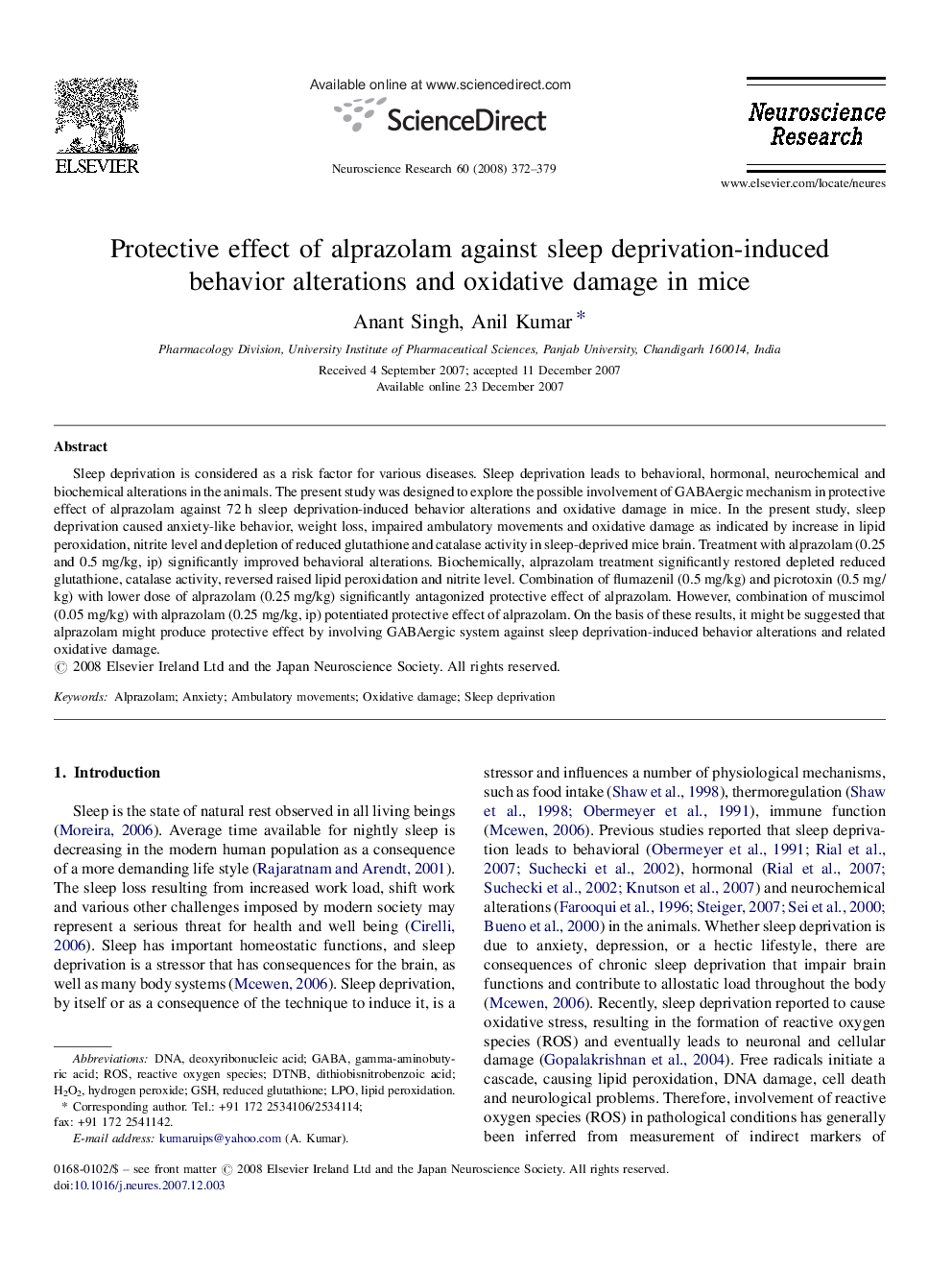| Article ID | Journal | Published Year | Pages | File Type |
|---|---|---|---|---|
| 4352255 | Neuroscience Research | 2008 | 8 Pages |
Sleep deprivation is considered as a risk factor for various diseases. Sleep deprivation leads to behavioral, hormonal, neurochemical and biochemical alterations in the animals. The present study was designed to explore the possible involvement of GABAergic mechanism in protective effect of alprazolam against 72 h sleep deprivation-induced behavior alterations and oxidative damage in mice. In the present study, sleep deprivation caused anxiety-like behavior, weight loss, impaired ambulatory movements and oxidative damage as indicated by increase in lipid peroxidation, nitrite level and depletion of reduced glutathione and catalase activity in sleep-deprived mice brain. Treatment with alprazolam (0.25 and 0.5 mg/kg, ip) significantly improved behavioral alterations. Biochemically, alprazolam treatment significantly restored depleted reduced glutathione, catalase activity, reversed raised lipid peroxidation and nitrite level. Combination of flumazenil (0.5 mg/kg) and picrotoxin (0.5 mg/kg) with lower dose of alprazolam (0.25 mg/kg) significantly antagonized protective effect of alprazolam. However, combination of muscimol (0.05 mg/kg) with alprazolam (0.25 mg/kg, ip) potentiated protective effect of alprazolam. On the basis of these results, it might be suggested that alprazolam might produce protective effect by involving GABAergic system against sleep deprivation-induced behavior alterations and related oxidative damage.
